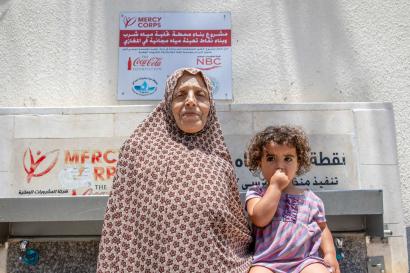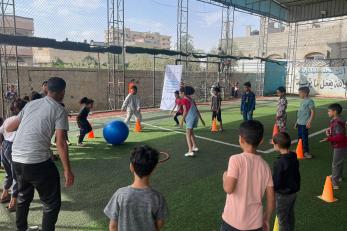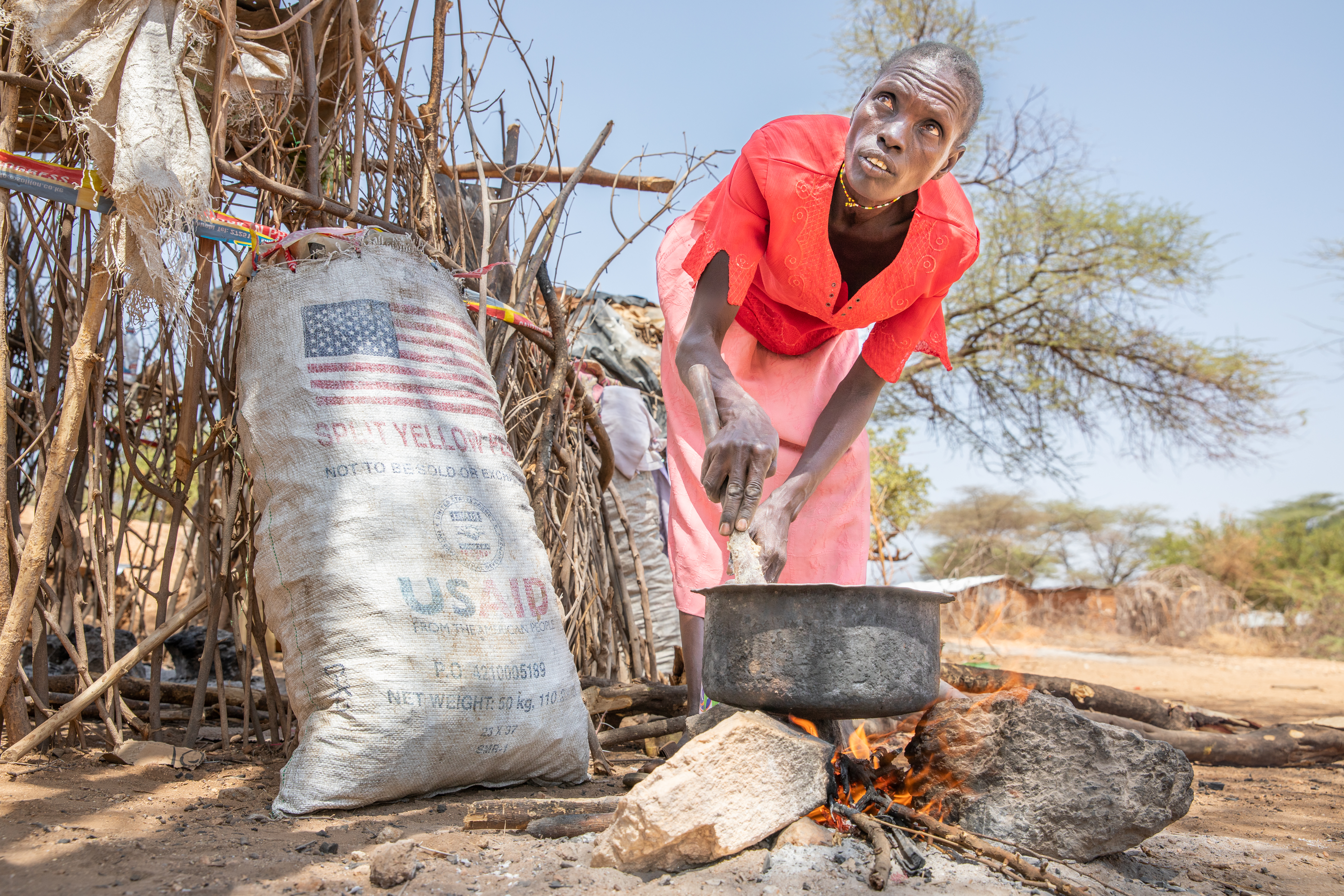Breadcrumb
Palestine (West Bank/Gaza)

Since 1986, Mercy Corps has helped Palestinians in the West Bank and Gaza access critical services and become more economically self-sufficient.
The context
The escalation of conflict that began on October 7, 2023, has sharply exacerbated the humanitarian crisis in the region. After one year of widespread and systematic bombardment, forced displacement, and man-made famine, over 41,000 Palestinians have been killed and nearly two million people are internally displaced in Gaza.
Palestinian families, who have already been forced to flee five or more times, are returning to places where they narrowly escaped death, knowing that they might face the same fate again, but with no other choice. More than two million people are unable to find clean water or food to sustain themselves. Malnutrition, disease, and illness are rampant due to the destruction of life-sustaining infrastructure like hospitals, desalination plants, and food production facilities.
The last year of war in Gaza has been one of the most difficult humanitarian contexts we have seen in decades. Despite a rapid freefall toward famine, aid organizations have been stymied at every turn as we try to save lives and safely deliver aid to and within Gaza.
Mercy Corps remains steadfast in our call for a ceasefire. Only a sustained ceasefire and an end to the siege coupled with the massive scale-up of humanitarian aid can prevent continued civilian death and destruction in Gaza. Until then, we’ll continue to use our voice, experience, resourcefulness, and partnership with peers and supporters to find ways to deliver relief and advocate for a peaceful end to the conflict.
Our impact
For more than three decades, Mercy Corps has worked in the West Bank and Gaza, meeting critical humanitarian needs. Our programs have supported Palestinian communities by:
- Helping communities cope with crisis
- Supporting marginalized and vulnerable youth
- Increasing economic opportunities
Helping communities cope with crisis
Despite the difficulties and uncertainty in delivering aid to Gaza, Mercy Corps has partnered with local organizations to deliver food and hygiene kits to thousands of families in areas where it is safe to distribute supplies. Mercy Corps has also provided electronic cash assistance so families may purchase the essential items that are available, though provisions are limited. The majority of humanitarian organizations have not been able to deliver support into Gaza safely or consistently—facing relentless hostilities, active restrictions on aid, and logistical barriers.

Mercy Corps is committed to finding solutions that give people more options and resources to meet their immediate needs. In the year since the conflict began in October 2023, Mercy Corps has provided support to over 172,000 people in Gaza. Mercy Corps will persevere and do all we can to continue providing assistance now to save lives and, when peace is achieved, to help rebuild lives and communities.
Supporting marginalized and vulnerable youth
In April 2024, our team in Gaza was able to overcome the challenges of bombardment and multiple forced displacements to resume our Positive Youth Engagement (PYE) program by adapting to current safety considerations and resource limitations. Working with the mentors and trainers, who had been part of the program before conflict began in October 2023, and our local partners, the program established a network of program spaces in Rafah, Khan Younis, Gaza City, and Beach Refugee Camp, among other locations. The PYE program has been adapted to offer children and young people in Gaza a range of services to support mental health amidst the devastation of living through a violent conflict.

Sports and hands-on activities at the camps help children and young people learn the collaboration and problem-solving skills needed to navigate challenges and establish positive relationships. In the West Bank, our ongoing youth engagement program is running online workshops to provide psychosocial and mental health support training for youth mentors, parents, and staff working at open social spaces for young people. As of September 2024, Mercy Corps has led more than 200 psychosocial support and basic education activities at well-being camps, reaching 2,500 children and young people along with 500 parents and caregivers.
Increasing economic opportunities
Prior to October 2023, Palestine’s tech sector supported thousands of freelancers, startups, and outsourcing companies. The ongoing crisis, which has overwhelmed every aspect of daily life, has affected the tech industry due to blocking of electricity and internet access, in addition to the lack of security. Intense bombing has destroyed infrastructure like roads, homes, and offices, forcing people to flee without access to housing and workspaces. Workers in Palestine—who had already faced restrictions in movement, goods, and funds prior to October 2023—had found increased livelihood opportunities in the information and communications technology sector due to the nature of remote work. They are now facing limited options and risk losing their livelihoods.
At Gaza Sky Geeks, which was launched in collaboration with Google for Startups in 2011, the team has seen firsthand the impact of tech in helping Gazans regain a sense of normalcy and self-sufficiency. Gaza Sky Geeks prepares young Palestinians to work in the global tech sector by training coders, linking freelancers to international markets, and creating a pipeline of early-stage startup companies that can compete regionally. Technology will be key to reviving the Gazan and Palestinian economy once a permanent ceasefire is achieved.

